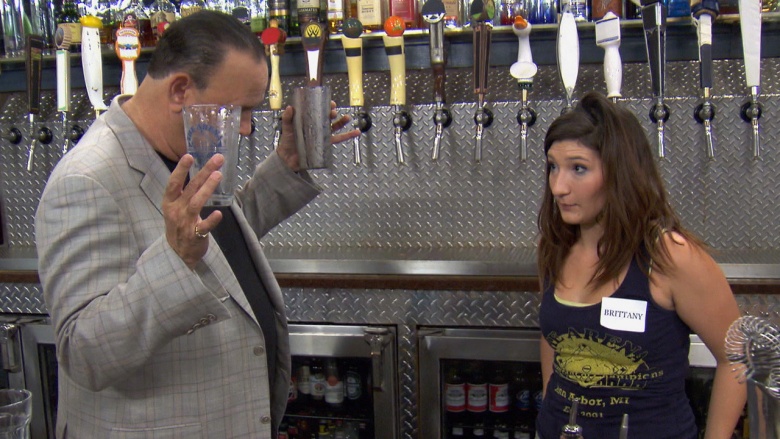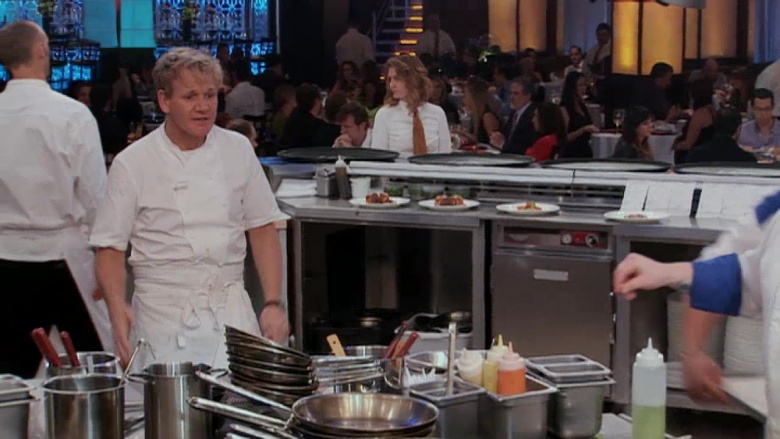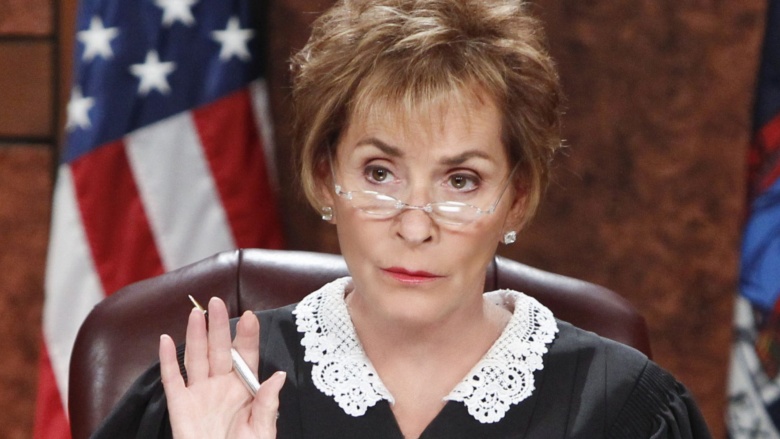How Reality Shows Really Find Their Contestants
Reality TV isn't like normal television. It stars regular people, usually being placed in extreme circumstances, but sometimes just living their lives and showing the world who they are. Part of the appeal in these shows is the idea that anyone watching could end up on them. The stars of reality TV shows aren't really actors trying to be discovered, so how do they end up in front of the camera?
Singing shows have multiple auditions
Anyone who's seen an episode of American Idol knows how it works. Hopeful contestants line up, wait for hours, and eventually get a chance to sing in front of the judges. If they're good, they get a pass to Hollywood. If they're bad? Well, depending on which judges are present, they either get politely turned down or have humiliating insults thrown at them. One thing that always stands out is how confident the bad singers are. Why is it so shocking for someone who's completely tone-deaf to hear that they can't sing? Well, that's because they just went through multiple rounds of auditions, each one boosting their ego a little more.
Every contestant gets an audition, but not necessarily in front of a judge. Most people sing in front of a small panel of producers, who decide whether they can move on or not. These preliminary rounds aren't necessarily being judged on singing ability. The show knows that it needs horrible singers for the judges to mock—those who are also kind of weird or eccentric are the best. It's also rumored that these shows will turn away people who are too good at singing. Since there's no autotune for personality, that's the one thing they know they can't fake.
Just bought a house? You might get to be on House Hunters!
Buying a house is a stressful decision. It's a huge commitment, and no one ever finds the perfect house. Especially married couples, because one person might hate a feature that the other one loves. That's why shows like House Hunters are so popular. It's better to watch people struggle with the decision as opposed to making it yourself. Unfortunately, the show is completely fake. Instead of casting people who are looking for a new house, the show casts people who have just bought a house. Oftentimes, they're already living in the new house. The producers choose cast members this way to ensure that a final decision is made on every episode. It's also much easier to manufacture the drama that way. Cast members are then shown a home that they have no interest in buying, and may not even be for sale. Sure, someone might be in love with certain features of the potential houses, but it's all just pretend. If you're buying a house and looking for help, these shows are not the place to turn.
Not all "struggling" businesses are actually struggling
A popular type of reality TV is the "fixing a failing business" show. Typically based around restaurants and bars, owners of a small business will seek the help of a reality personality. Gordon Ramsay, for example, travels the country working as a consultant on Kitchen Nightmares. While many of the establishments featured on that show are really struggling, other places in this series will oftentimes fake it. Producers will look for interesting or odd businesses to feature on the show, and then manufacture the drama if they have to. The changes made on the show aren't even permanent. Most businesses fail for boring reasons, like an oversaturation of the market or mismanagement of finances.
No one wants to watch a decent steakhouse struggle to find customers in a small town. Instead, they want to show bars with wacky themes that are staffed by eccentric characters. The producers promise the establishment publicity for appearing on the show. They also make them sign non-disclosure agreements, so they can't come out later on and admit that business was just fine. It turns out appearing on TV and pretending to be going broke and getting yelled at by a reality star for a half hour isn't a great marketing strategy.
Competitive chefs are actually found in random kitchens
Why would any professional chef ever appear on those reality cooking shows? Unlike singing and acting competitions, getting work as a cook is a very achievable goal. Cooking shows, however, purposely fill their menus with complicated dishes and put the cooks in overly stressful situations to ensure that they make mistakes, so they can get yelled at and make for entertaining TV. Even if the chefs don't make mistakes, clever editing will be used to fake them. Viewers obviously can't taste the prepared food, so the show can always just say a perfectly cooked dish tastes terrible.
Why would a professional chef risk their career just to appear on one season of a show? Apparently not many do, because these shows reportedly attract a lot of weirdos. Back in 2011, reports started emerging that casting agents for Hell's Kitchen were literally just walking around Manhattan and entering any restaurant that seemed to have a buzz. They'd ask to meet the kitchen staff and then try to convince anyone they deemed interesting enough if they wanted to be on whichever episode was being cast at the time. It's much harder to turn down being on TV when someone literally walks into your job and offers you fame.
Courtroom shows offer to pay legal fees
Ever watch Judge Judy and wonder why people are talking back to a judge? Even though she's technically acting as an arbitrator, Judy is still a judge and the decision is still final. Wouldn't it make sense to treat her with respect, especially considering how annoyed she gets by bad behavior? People talk back to her because the cases have already been decided before filming. For any courtroom show to work, the cases need to be interesting, and the people involved need to be weird, angry, or just plain old stupid. The truth is that most lawsuits are fairly boring, and no one wants to watch people argue over mundane business affairs.
Producers go looking for particularly interesting cases, even though this usually means that one side is clearly wrong in the case. In fact, this helps with the casting. The show offers to pay the settlement amount, making it worthwhile for people with bad cases to appear on TV. The cases are decided before Judge Judy ever enters the courtroom, which is why people always talk back to her. This way, the show can have someone that's clearly wrong get into an argument with the feisty judge, because there's nothing left to lose. Now, you can feel less guilty about watching.






